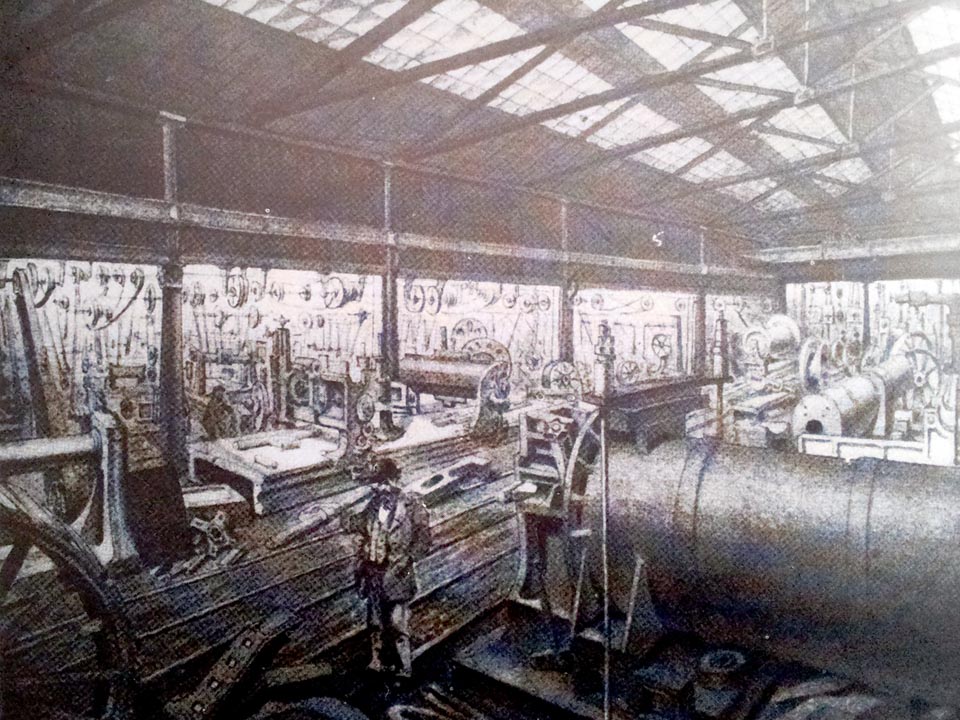Fowler's workshop

The technical expertise of those involved in the project was a product of Great Britain’s entrepreneurial industrial economy. Fowler’s was a company experienced in iterative improvement of proven technologies. The Duke was a headstrong enthusiast with significant financial resources.
In terms of taking a technology and making it work, the attitude and skills of this profile is ideal. As machinery and technology became more and more sophisticated, and the application of scientific principles necessary to understand and evolve complex designs, the more formal education system of countries like Germany began to prevail. Longer years of structured technical training allowed their engineers to plan long-term development projects that would in the coming years deliver economic success in areas such as the automotive and aeronautical industry. The Sutherland plough was an example of reactive designing, where changes were made as necessary based on the problems of undertaking the work. This iterative process relied on the resilience and ingenuity of Fowler’s to ensure the work continued, but did not serve to identify and address broader strategic issues such as the development of the internal combustion engine and its implications for steam power.
